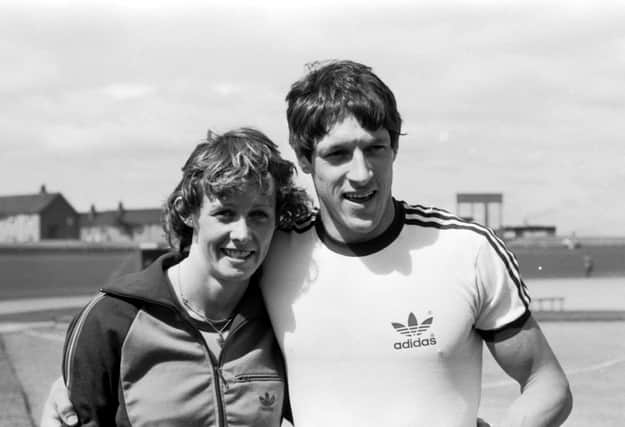Five things you should know about Scottish sprinter Allan Wells


The sprinter, born in Edinburgh, became a household name in 1980 when he won gold in the 100 metres at the Moscow Olympics in 1980. Here are five facts you may, or may not, know about the legendary athlete.
He almost missed the 1980 Olympics
The Scot would eventually edge out Cuban athlete Silvio Leonard in a incredibly tight race, with both men finishing on a time of 10.25 seconds. Wells later credited the early dip he performed as the pair crossed the finishing line for his victory.
Advertisement
Hide AdAdvertisement
Hide AdHowever, the sprinter nearly missed the games completely when, just a couple of days before the British team were due to fly out, he pulled up with a back strain which stopped him from training. Rather than hinder his chances, Wells believes it proved to be beneficial, as he was well rested and raring to go when it finally came time to race.
In winning the 100m, he became the first Briton since Harold Abrahams to win a 100m title at the Olympics, and the first Scottish sprinter to win on the track since Eric Liddell. Both of those accomplishments were set in 1924, 56 years before Wells' triumph.
He also won silver in the 200m final, missing out on a double gold triumph by 0.02 seconds.
He began his athletics career as a long jumper
Wells didn't switch to sprinting until 1976, four years before his Olympic triumph in the 100m. He would later say he never liked the idea of running because he didn't want five men beating him at the same time. Besides, he was pretty handy at the jump events, winning the long and triple jump Scottish nationals in 1974.
There was a story that he used to rake the sand in the long jump pit, but this turned out to be an urban legend. He did, however, volunteer to help out at the 1970 Commonwealth Games at Meadowbank, where he did have the job of putting out hurdles on to the track.
He was trained by his wife Margot
Today, Margot Wells is one of the most respected sprint coaches in British sports and has helped several rugby union stars with their sprinting techniques. It all started with her husband's rise to prominence under her tutelage. Famous for using the speedball as a workout technique, she helped her husband become an Olympic champion.
When Wells won gold, Margot was in attendance at the ITV studio, and footage of her screaming "c'mon Alan" was replayed often over the next few years.
Wells was put under severe pressure to withdraw
Several countries, including the United States, boycotted the 1980 Moscow Games after the USSR sent troops into Afghanistan. The British government, led by Prime Minister Margaret Thatcher, wanted to follow suit in a show of solidarity with their political allies. However, Thatcher didn't have power over the British Olympic Association, who stood by the athletes who wanted to compete.
Advertisement
Hide AdAdvertisement
Hide AdWhen they realised they couldn't use public pressure to get the athletes to withdraw, they began sending letters. Wells would later recall that he received around six or so letters from the Prime Minister, imploring him to pull out of Moscow 1980. "The last one included a picture of a young girl sprawled dead on the ground with a doll lying six inches from the tips of her fingers," Wells said. "It was a very distasteful and underhand tactic."
The sprinter remained firm in his stance, ultimately travelling to Russia and creating history.
He would defy his critics just two weeks later
Because Wells won the gold with so many athletes missing due to the boycotts, many detractors thought it was a tainted victory. Had the Americans, particularly Stanley Floyd and Mel Lattany, been present at Moscow, then surely they would have won, so the argument went.
Fired up by such talk, Wells decided to race in Germany just two weeks after his gold medal win. Still plagued by back trouble and exhausted after a tiring season, it was a huge gamble to take. Had he lost, the critics would forever have held the ammunition to degrade his accomplishment. But Wells was determined to prove to everyone that he was the finest sprinter in the world. And so he did. Beating the field to win the final, Wells was approached by Lattany shortly after the race finished. The magnanimous American wanted to let the Scotsman know that, regardless of who was running, Wells would have won Olympic gold in Moscow.